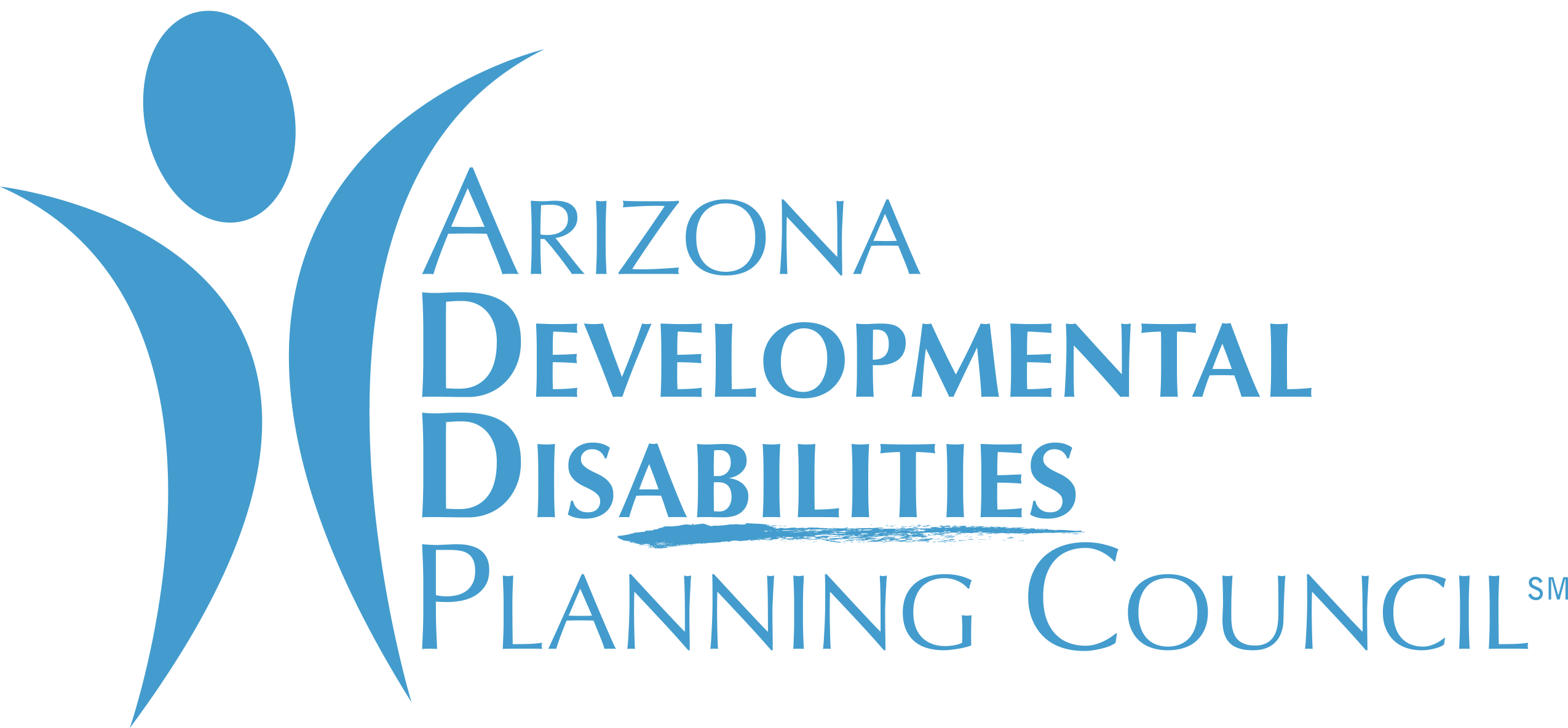List of 2022 Bills - Arizona State Legislature
The active bill list will be updated every Tuesday during the legislative session. The bills listed are active bills that have had a hearing or a hearing has been scheduled.
NOTE: While some of the appropriations bills (including HB2393, HB2394, HB2528, SB1230, and SB1535) did not pass on their own, the funding they requested was actually incorporated into the state budget. In fact, the amount requested in SB1230 ($30 million) turned into almost $57 million once the budget was finalized.
State House Bills
HB2031 HIGHER EDUCATION; INDIVIDUALS WITH DISABILITIES
HB2040 SPECIAL EDUCATION SERVICES; NOTIFICATION
For the purposes of empowerment scholarship accounts (ESAs), a qualified school is required to notify the parent or guardian of a prospective qualified student in writing of the individual special education services and educational therapies that the school will provide to the student before the parent or guardian pays tuition or fees from an ESA to the school.
HB2049 FINGERPRINT REQUIREMENTS; CARE FACILITIES
Contracted persons or volunteers of residential care institutions, nursing care institutions or home health agencies who provide specified health-related services or "direct supportive services" (defined) are required to have valid fingerprint clearance cards or to apply for a card within 20 working day of beginning volunteer work or contracted work.
Signed Into Law
HB2060 SUPPLEMENTAL NUTRITION ASSISTANCE PROGRAM; ELIGIBILITY
Despite statute allowing the court to render the person who is convicted ineligible to receive any public benefits, a person who is convicted of a felony offense involving the use or possession of a controlled substance may be eligible for the Supplemental Nutrition Assistance Program if the person is in compliance with all terms of probation, including any drug testing requirements, and previous requirements for the person to complete a substance abuse treatment program or meet other specified requirements in order to be eligible are deleted.
HB2088 ALTCS; PREADMISSION SCREENING
Preadmission screening conducted by the Arizona Long-Term Care System must be conducted telephonically, unless the Arizona Health Care Cost Containment System Administration determines it is necessary to conduct the assessment in person.
Signed Into Law
HB2098 PSYCHIATRIC ASSESSMENT; NURSE PRACTITIONERS; REPORTING
A psychiatric and mental health nurse practitioner is added to the list of health professionals that are authorized to conduct an outpatient assessment of a child exhibiting behavior that indicates that the child may suffer from a mental disorder or is a danger to self or others.
Signed Into Law
HB2113 DEVELOPMENTAL DISABILITIES; DOWN SYNDROME
For programs administered by the Department of Economic Security Division of Developmental Disabilities, the definition of "developmental disability" is expanded to include a severe, chronic disability that is attributable to "down syndrome" (defined).
Signed Into Law
HB2157 SUPPLEMENTAL APPROPRIATIONS; COMMUNITY-BASED SERVICES
Supplemental appropriations in FY2021-22: $30.1 million from the Children's Health Insurance Program Fund and $1.078 billion of expenditure authority to the Arizona Health Care Cost Containment System Administration to implement the American Rescue Plan Act of 2021 home and community-based services spending plan and to adjust funding formula requirements; $362.7 million of expenditure authority to the Department of Economic Security Division of Developmental Disabilities to implement the American Rescue Plan Act of 2021 home and community-based services spending plan.
Signed Into Law
HB 2319 LAW ENFORCEMENT ACTIVITY; RECORDING PROHIBITION
It is a petty offense for a person to knowingly make a video recording of law enforcement activity without the permission of a law enforcement officer if the person is within 8 feet of where the law enforcement activity is occurring. If a person fails to comply with a verbal warning of a violation or has a previous conviction of a violation of this legislation, the criminal classification is increased to a class 3 (lowest) misdemeanor.
Signed Into Law
HB2382 APPROPRIATION; HEALTH PROGRAMS; DISABILITIES
Appropriates $1 million from the general fund in FY2022-23 to the Department of Health Services for grants to statewide organizations that are dedicated to promoting evidence-based, inclusive health programs for persons with intellectual and developmental disabilities.
HB2393 ADULT PROTECTIVE SERVICES; AUDIT; APPROPRIATION
The Auditor General is required to engage an independent consultant with expertise in adult protective services operations and investigations to examine the current adult protective services and consider best practices to improve the delivery of services in Arizona. The consultant is required to submit a report of its findings and recommendations to the Governor and the Legislature by July 1, 2023. Appropriates $300,000 from the general fund in FY2022-23 to the Auditor General for this purpose.
HB2394 GROUP HOMES; MONITORING; APPROPRIATION
Establishes a 3-year Developmental Disabilities Group Home Monitoring Pilot Program in the Department of Economic Security (DES), which requires a designated entity to monitor and inspect in person all of the group homes once each year and take a list of other specified regulatory actions. DES is required to develop a process to determine which of its clients are at a higher risk of abuse or neglect. By an unspecified date (blank in original), the designated entity is required to report to the Governor and the Legislature on the outcomes of the Pilot Program. Appropriates $1.2 million from the general fund in FY2022-23 to DES for the Pilot Program
HB2397 EMOTIONAL ABUSE; VULNERABLE ADULTS
For Adult Protective Services statutes, the definition of "abuse" is expanded to include "emotional abuse" (defined).
Signed Into Law
HB2528 AREA AGENCIES ON AGING; APPROPRIATION
Appropriates $1.5 million from the general fund in FY2022-23 to the Department of Economic Security to distribute to area agencies on aging for home and community-based services. The Legislature intends that this appropriation be considered ongoing funding in future years.
HB2594 TRAUMA RECOVERY CENTERS; GRANTS
Establishes the Trauma Recovery Center Fund, to be administered by the Department of Health Services (DHS) and used to provide grants to "trauma recovery centers" (defined) that meet specified eligibility requirements. By October 1 of each year, DHS is required to report to the Governor and the Legislature on the trauma recovery centers that received grant monies. Contains legislative findings.
Signed Into Law
HB2659 ORGAN TRANSPLANTS; DISABILITIES; DISCRIMINATION; PROHIBITION
Health care providers are prohibited from determining that an individual is ineligible to receive an organ transplant, refusing to place the individual on an organ transplant waiting list, or denying an individual medical or other services related to an organ transplant based solely on the individual's disability. Applies to each stage of the organ transplant process. If an individual believes that a health care provider or facility has violated this prohibition, the affected individual may commence a civil action for injunctive and other equitable relief for the purpose of enforcing compliance.
Signed Into Law
HB2751 SUPPORTED DECISION-MAKING, SUPPORTER OBLIGATIONS
Adds a new article to Title 14 (Trusts, Estates and Protective Proceedings) regulating "supported decision-making agreements," defined as an agreement between an adult with a "disability" (defined as a physical or mental impairment that substantially limits one or more major life activities) and a "supporter" (defined) to enable the adult to make life decisions without impeding the adult's self-determination. An adult is authorized to voluntarily enter into a supported decision-making agreement to authorize the supporter to provide supported decision-making, assist the adult with accessing relevant information and understanding that information, and assist the adult in communicating the adult's decisions to appropriate persons. The supported decision-making agreement is required to set forth the rights and obligations of both the adult and the supporter. If the supporter intimidates or deceives the adult in procuring the supported decision-making agreement, the supporter is subject to criminal prosecution and civil penalties. The supporter is prohibited from receiving compensation because of the supporter's duties under a supported decision-making agreement. An "interested person" (defined) is authorized to file a verified petition with the superior court to determine the validity of the supported decision-making agreement. A supported decision-making agreement is required to be signed by the adult and the supporter in the presence of two or more subscribing witnesses or a notary public. A supported decision-making agreement terminates if at any time the adult becomes an "incapacitated person" (defined elsewhere in statute) or on the appointment of a guardian. Establishes a standard form for supported decision-making agreements and requires supported decision-making agreements to be in substantially that form. A supported decision-making agreement is added to the definition of “governing instrument” for the purpose of Title 14 (Trusts, Estates and Protective Proceedings). Effective January 1, 2023. STALLED
HB2818 CTE; ARTICULATED CREDIT; STATEWIDE AGREEMENT
The Superintendent of Public Instruction and the community college districts are required to enter into a career technical education statewide articulation agreement. The agreement must establish a program for credit articulation between secondary and postsecondary education for Career Technical Education District (CTED) programs offered in Arizona. To receive credit, a secondary student sis required to meet all the requirements for high school graduation and complete the sequence of courses for at least one CTED program.
HB2865 BUDGET; HUMAN SERVICES; 2022-2023
Establishes the Developmental Disabilities Group Home Monitoring Pilot Program in the Department of Health Services (DHS) and establishes Program requirements. The Program self-repeals on January 1, 2027. During FY2022-23, on or before January 1, 2024, and each year thereafter, the 14 departments of economic security shall provide an annual report to the 15 chairpersons of the health and human services committees of the senate and 16 the house of representatives, or their successor committees, the directors 17 of the Arizona Health Care Cost Containment System and the department of 18 health services and the designated entity conducting the developmental 19 disabilities group home monitoring pilot program
Signed Into Law
State Senate Bills
SB1075 INCOMPETENT DEFENDANT; GUARDIAN APPOINTMENT; COSTS
If the court finds that a defendant is incompetent to stand trial and that there is no substantial probability that the defendant will regain competency within 21 months, any party is allowed to request that the court appoint a guardian ad litem (GAL) to investigate whether the defendant is or may be in need of a guardian, a conservator or any other protective order, instead of being allowed to request that the court appoint a guardian. A GAL who determines that protective action is appropriate is required to initiate and prosecute proceedings for the appointment of a guardian, a conservator or any other protective order. A GAL is entitled to reasonable compensation for the work performed. If the defendant is indigent, the court is authorized to order the county to pay the reasonable compensation.
Signed Into Law
SB1077 AHCCCS; CHIROPRACTIC CARE; REPORT
Subject to approval by the federal Centers for Medicare and Medicaid Services, the list of medically necessary health and medical services that Arizona Health Care Cost Containment System (AHCCCS) contractors are required to provide is expanded to include chiropractic services that are performed by a licensed chiropractor and that are ordered by a primary care physician or primary care practitioner pursuant to rules adopted by the AHCCCS Administration. The primary care physician or practitioner is permitted to initially order up to 20 visits annually and to authorize additional medically necessary chiropractic services in that same year. Monies from the Hospital Assessment Fund are prohibited from being used to provide chiropractic services. The AHCCCS Administration is required to prescribe qualifying conditions for chiropractic services and require contractors to report on the use of chiropractic services. The AHCCCS Administration is required to submit a report of chiropractic care cost savings determinations to the Governor and the Legislature by January 21, 2027.
SB1114 COURT-ORDERED TREATMENT; CASE RECORDS; CONFIDENTIALITY
Unless otherwise provided by law, court rule or court order, the case records of and case information regarding a court proceeding brought under statutes governing court-ordered mental health evaluation and court-ordered mental health treatment are not open to public access or inspection. The court is permitted to authorize the release of these case records and case information for good cause shown. The Supreme Court is authorized to adopt rules to govern the access to the case records and case information.
Signed Into Law
SB1130 CHILD; VULNERABLE ADULT; ABUSE
It is a class 2 (second highest) felony for a health care professional to intentionally or knowingly engage in any of the following practices or cause any of the following practices to be performed on a child or vulnerable adult to attempt to change the child's or vulnerable adult's sex or to affirm the child's or vulnerable adult's perception of their sex if that perception is inconsistent with the child's or vulnerable adult's sex: performing surgeries that sterilize; performing a mastectomy; administering, prescribing or supplying specified medications that induce transient or permanent infertility; and removing any otherwise healthy or non-diseased body part or tissue. If done recklessly, the criminal classification is reduced a class 3 (upper mid-level) felony, and if done with criminal negligence, the criminal classification is reduced to a class 4 (lower mid-level) felony. Does not apply to a health care professional who acts in accordance with a good faith medical decision of a parent or guardian of a child or vulnerable adult who is born with a medically verifiable genetic disorder of sex development. These medical practices are added to the definition of "abuse" and committing child abuse under this definition against a minor who is under 15 years of age is classified as a dangerous crime against children.
SB1210 MENTALLY ILL; TRANSPORTATION; EVALUATION; TREATMENT
If the court, an admitting officer of an evaluation agency, or an evaluation agency is allowed to authorize or issue an order for the apprehension and transportation of a proposed patient by a peace officer, then the court, officer, or agency is allowed to authorize the apprehension and transportation by an "authorized transporter" (defined as an ambulance company or transportation provider authorized to provide safe behavioral health transportation). Establishes limits on civil liability for the apprehension or transportation, which do not apply to a person who acts with gross negligence. Establishes a 13-member Study Committee on Alternative Behavioral Health Transportation to research and make recommendations for the implementation of and the use of alternative behavioral health transportation providers for individuals involved in mental health treatment or evaluation processes, as an alternative to transportation by peace officers. The Committee is required to submit a report of its findings and recommendations to the Governor and the Legislature by December 31, 2023, and self-repeals July 1, 2024.
Signed Into Law
SB1230 DEVELOPMENTAL DISABILITIES; PROVIDER INCREASES
Appropriates the following amounts in the following fiscal years to the Department of Economic Security (DES) to provide reimbursement rate increases for services to individuals with intellectual and developmental disabilities: $30 million from the general fund and an unspecified amount (blank in original) in Medicaid expenditure authority in FY2022-23, and an unspecified amount (blank in original) from the general fund and an unspecified amount (blank in original) in Medicaid expenditure authority in FY2023-24 and FY2024-25. DES is required to use the FY2019-20 rate rebase study to provide reimbursement rate increases for all services provided to individuals with intellectual and developmental disabilities in FY2022-23, FY2023-24, and FY2024-25 so that each service receives an increase in each of the three fiscal years. DES is required to ensure that all reimbursement rates for services provided to individuals with intellectual and developmental disabilities are at 100 percent of the benchmark rates by the end of FY2024-25. DES is required to report to the Joint Legislative Budget Committee by September 1 each fiscal year describing its plans to implement these provider rate increases. Contains a legislative intent section.
SB1231 INDEPENDENT OVERSIGHT COMMITTEE; DEVELOPMENTAL DISABILITIES
The Division of Developmental Disabilities in the Department of Economic Security (DES) must allow the Independent Oversight Committee on Persons with Developmental Disabilities up to 30 days to review new policies and major policy changes before the Division submits the policies or changes for public comment.
Signed Into Law
SB1257 LONG-TERM RECREATIONAL VEHICLE PARKS; CAREGIVERS
The requirements for a resident of a long-term recreational vehicle (RV) park to have a caregiver occupy the RV to provide live-in health care to the resident are modified to require the resident to have a disability (as defined elsewhere in statute) and to require the services provided by the caregiver to be necessary to afford the resident equal opportunity to use and enjoy the dwelling. Previously, the resident was required to provide a written treatment plan from the resident's physician every six months for a caregiver to be authorized to do so. Landlords are no longer authorized to require the resident to provide a written renewal of the treatment plan every six months.
Signed Into Law
SB1308 DHS LICENSURE; GROUP HOMES
By July 1, 2023, "behavioral-supported group homes" (defined) and group homes operated in Arizona by a service provider and under contract with the Department of Economic Security are required to be licensed by the Department of Health Services (DHS). Establishes a list of rules for group homes that DHS is required to adopt. Group homes and behavioral-supported group homes are exempt from required zoning standards for a health care institution. DHS cannot accept an accreditation report in lieu of a compliance inspection of a behavioral-supported group home, a group home, or a nursing-supported group home.
Vetoed
SB1309 GROUP HOME MONITORING; COMPLEX NEEDS NOW: temporary licenses; health professionals; extension
Any temporary license that was issued by a health profession regulatory board to a health professional during the Governor's declaration of emergency related to COVID-19 and that was active on March 1, 2022 does not expire until January 1, 2023.
Signed Into Law
SB1311 HEALTH CARE WORKERS; ASSAULT; PREVENTION.
The list of victims of assault that cause an assault to be classified as aggravated assault if the defendant knows of their profession is expanded to include a "health care worker" (defined) while engaged in the health care worker's work duties. Aggravated assault committed on a health care worker is a class 6 (lowest) felony otherwise. By July 1, 2023, "health care employers" (defined as licensed health care institutions with more than 50 employees) are required to develop, implement, and maintain a written workplace violence prevention plan that includes specified provisions. As soon as practicable after a workplace violence incident is reported to a health care employer, the employer is required to investigate the incident and to document the findings, recommendations and corrective measures taken for each investigation conducted.
Signed Into Law
SB1336 DEVELOPMENTAL DISABILITIES; SPINA BIFIDA
The definition of "developmental disability" is expanded to include a severe, chronic disability that is attributable to "spina bifida" (defined).
SB1519 SPECIAL EDUCATION; COST STUDIES
By December 1, 2022, and every two years thereafter, the Department of Education is required to complete a cost study of special education programs.
SB1536 APPROPRIATION; HOME; COMMUNITY BASED SERVICES NOW: appropriation; community-based services
Makes a supplemental appropriation of $5 million from the general fund in FY2022-23 to the Department of Economic Security for home and community-based services.
SB1542 GROUP HOMES; ELECTRONIC MONITORING
A service provider that operates a group home, a nursing-supported group home or an intermediate care facility for persons with intellectual disabilities is required, instead of allowed, to install, oversee and monitor electronic monitoring devices in common areas, unless any member or the member's family or guardian objects to the installation of the electronic monitoring devices.
Signed Into Law
SB1651 SERIOUS MENTAL ILLNESS; ANNUAL REPORT
The Arizona Health Care Cost Containment System (AHCCCS) Administration is required to annually report to the Joint Legislative Budget Committee and the chairpersons of the health and human services committees of the Senate and the House of Representatives on a list of specified information relating to individuals living with serious mental illness.
Signed Into Law
Voting Bills
SB1058 DRIVE-UP VOTING; PROHIBITION
The county recorder or officer in charge of elections is prohibited from allowing a voter to receive a ballot and vote from a vehicle or other conveyance, and from using a ballot drop box except inside a polling place or voting center or the county recorder's or election department's offices. Appropriately trained election workers are required to monitor ballot drop boxes.







